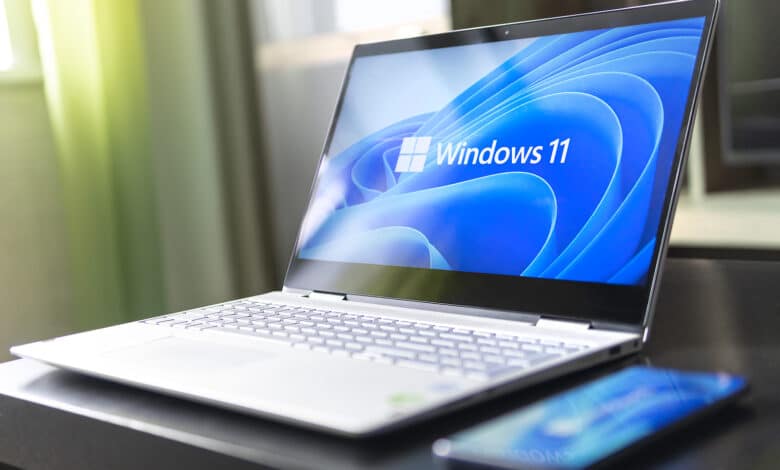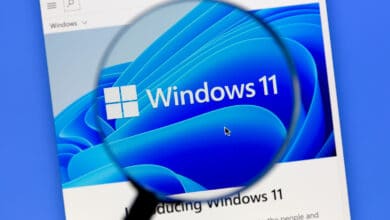
As so often with the introduction of a new operating system, Windows 11 apparently still suffers from some teething problems. The community has now noticed another problem that could turn out to be annoying. For example, SSD speeds seem to be significantly slower compared to Windows 10.
Measurably slower values
The slower speeds are not based on simple subjective experiences. Quite the contrary. They are supposed to be differences that can be backed up with measurement results. The measurement is supposed to be about current NVMe SSDs. Members of the Windows community used common benchmarks to make comparisons without further ado. The results speak a clear language. Besides weaker read and write speeds, the users also noticed lower IOPS. The benchmark “Crystaldiskmark” was used for a comparison.
As so often with the introduction of a new operating system, Windows 11 apparently still suffers from some teething problems. The community has now noticed another problem that could turn out to be annoying. For example, SSD speeds seem to be significantly slower compared to Windows 10.
Measurably slower values
The slower speeds are not based on simple subjective experiences. Quite the contrary. They are supposed to be differences that can be backed up with measurement results. The measurement is supposed to be about current NVMe SSDs. Members of the Windows community used common benchmarks to make comparisons without further ado. The results speak a clear language. Besides weaker read and write speeds, the users also noticed lower IOPS. The benchmark “Crystaldiskmark” was used for a comparison.
The user fg2001 examined an NVMe SSD from the manufacturer SK Hynix. In the comparison between two equivalent systems, the SSD achieved 20 percent weaker random write rates in Windows 11 than in the Windows 10 system. This result was not only achieved with the modern NVMe SSD from Hynix. Meanwhile, almost outdated SATA-SSDs like the Adata SU800 also revealed similar rates. With the Samsung MZVLW, we also had to determine the performance difference in another NVMe-SSD.
Possible cause of the performance difference
However, the users do not only complain about the problem itself, but are already investigating the cause. Finally, other users have also confirmed the SSD problem. A user named eapLM focuses on the so-called Virtualization-based Security (VBS). Users had already reported a measurably slower system in connection with VBS in the past. But this seems to be only the tip of the iceberg. The user fg2001 went a bit deeper into the matter and deactivated VBS without further ado. This was obviously not really effective.
“It definitely makes a difference, but is still slower than Windows 10, which has VBS enabled anyway”
Microsoft vows improvement
Of course, Microsoft has a reputation to lose, especially with its popular operating system. So it is hardly surprising that the company vows improvement of the SSD problem that has now become known. The patches released so far also seem to bear fruit. Thus, measurements have already determined about 10 percent better values. However, even with the patches released so far, the speeds are still significantly lower than in Windows 10.The user fg2001 examined an NVMe SSD from the manufacturer SK Hynix. In the comparison between two equivalent systems, the SSD achieved 20 percent weaker random write rates in Windows 11 than in the Windows 10 system. This result was not only achieved with the modern NVMe SSD from Hynix. Meanwhile, almost outdated SATA-SSDs like the Adata SU800 also revealed similar rates. With the Samsung MZVLW, we also had to determine the performance difference in another NVMe-SSD.
Possible cause of the performance difference
However, the users do not only complain about the problem itself, but are already investigating the cause. Finally, other users have also confirmed the SSD problem. A user named eapLM focuses on the so-called Virtualization-based Security (VBS). Users had already reported a measurably slower system in connection with VBS in the past. But this seems to be only the tip of the iceberg. The user fg2001 went a bit deeper into the matter and deactivated VBS without further ado. This was obviously not really effective.
“It definitely makes a difference, but is still slower than Windows 10, which has VBS enabled anyway”
Microsoft vows improvement
Of course, Microsoft has a reputation to lose, especially with its popular operating system. So it is hardly surprising that the company vows improvement of the SSD problem that has now become known. The patches released so far also seem to bear fruit. Thus, measurements have already determined about 10 percent better values. However, even with the patches released so far, the speeds are still significantly lower than in Windows 10.



